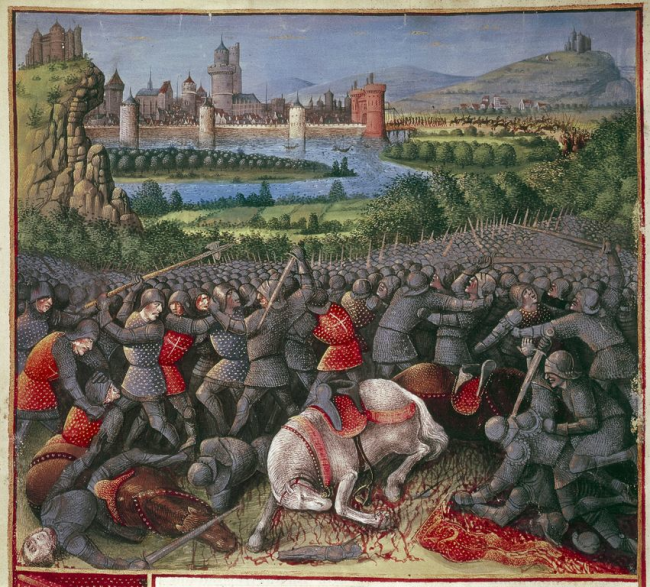Take Two #66: Violence Video, Violent Viewers
Does watching violence beget violence in the real world? The debate is as fresh as ever.
Mon, 02/11/2013
By Kyra-lin Hom
Does viewing violence in media trigger violent action? In high school, I wrote a column on the correlation between violent video game play and violent behavior. I polled several of my high school peers (both genders) on their beliefs in regards to the topic as well. What I found was that, despite evidence suggesting that violent video games and violent behavior activate the same areas in the brain, my peers, who regularly played these kinds of games, did not believe that the two were related. An interesting little bit of self-blindness there.
It's now about six years later. New research has been done, new information is available, and I have a degree in film. Combine that with my online psychology class currently covering developmental psychology (including the influence of violent media) and I felt the sudden urge to revisit the topic.
It turns out that the debate is still as fresh as ever. New studies have shown that consuming violent media does consistently increase a viewer's aggression, desensitization to violence and apathy toward victims. This change is more pronounced in men than in women. It doesn't matter if that media is film, TV or video games. For example, a study in 2009 showed that individuals who had just watched a violent film were less likely to help an injured woman than individuals who had watched a non-violent film. Notice that this influence extends beyond aggressive tendencies and into how we relate to others in daily situations.
But the caveat is that the duration of this effect is questionable. This is especially true when studying adults. Depending on the study, this mood adjustment lasts anywhere from a half a year to just a few minutes. Plus, there is no dependable data that links violent media to violent crime. I mean, statistically homicide rates tend to double after TV is introduced to a culture, but critics rightly point out that correlation doesn't mean causation. There could be any number of compounding factors.
Children however are much more malleable. Back in 1961 Albert Bandura showed rather decisively that children internalize observed behavior, particularly the behavior of figures they look up to. Another interesting bit of research from 2011 found that people in general are more vulnerable to violence priming when the observed violence is a) performed by an attractive individual, b) believably 'justified,' c) goes unpunished, and/or d) causes no explicitly visible pain or harm. I think that puts us three-quarters of the way to an American feature film, don't you?
In that same vein, not all violent media is 'bad.' An increase in video game specific research is revealing that these games can teach empathy just as well as apathy and can be a healthy outlet for built up aggression. Case in point, role playing games (as opposed to first person shooters) involve friendship, cooperation, trust and teamwork both with other online players and computer generated characters. The better the game design, the more realistic the situations. Playing these games can actually improve social behavior. And as far as being an emotional outlet, when a violent game is played with the goal of releasing aggression rather than engaging in it, playing the game does become a kind of catharsis.
It's pretty clear that watching Shoot 'em Up or Saw V isn't going to turn you into a psychopath. But it is quite possible that watching these movies will put thoughts in your head that you might not have had otherwise thus priming you to react more violently in stressful situations. Science is both incredibly imprecise and extremely demanding so it's refusing to conclude one way or the other. Marketing and the military don't have quite the same compunctions.
Consider that the military uses war-simulating video games to recruit future soldiers. Or that pilot-training flight simulators would be right at home in a large arcade. Or that billions of dollars is funneled every year into media advertising and political campaigns because research supports the effectiveness of mere product exposure. Now tell me, how is violence less seductive than a balding, middle-aged man showing he really understands? It's not.
For one reason or another, violence holds our attention. Polished and glamorized violence (and sex if we're really going to get into it) sells. Have you ever watched badly shot but real footage of violence? Boring. I had the startling realization a few weeks ago that actual footage doesn't look real to me. That's the biggest problem – and our best order of response, reminding ourselves just what is real and what is constructed. It's harder than it should be to do.


